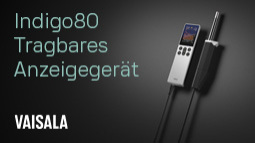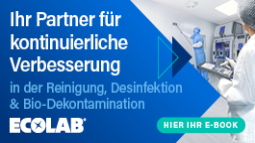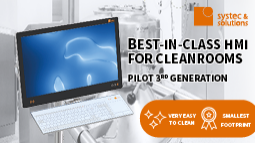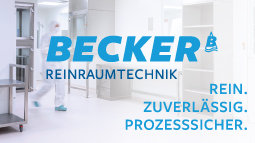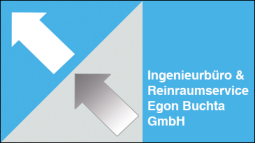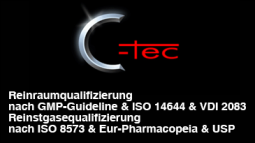Additive Manufacturing requires the expertise of powder specialists
Industrial 3D printing, otherwise known as additive or generative manufacturing, is growing in importance at a huge pace. New areas of application are taking shape, and advances are constantly being made in material development and process optimization. Many of the materials used come in powdered form, and require the expertise of powder specialists in their manufacture, quality assurance, processing and logistics. The forum for innovation in this field is POWTECH, the Leading Trade Fair for Powder and Bulk Solids, which takes the form of a Special Edition in Nuremberg from 30 September to 1 October this year. The Special Edition, adapted as a consequence of the global Covid-19 pandemic, focuses this year on knowledge sharing, including the area of 3D printing.
Additive manufacturing had its origins in rapid prototyping. The crucial advantage – reducing cycle times from product development to manufacturing to market launch – opened the way for this technology to be used in mass production. It is now possible to customize products and incorporate additional functions without difficulty in much shorter timeframes and at lower costs. Additive manufacturing thus gives companies an excellent opportunity to differentiate themselves from the competition, act more swiftly, and use fewer resources in their manufacturing processes.
This method of manufacture has now found its way into many industries. It offers new opportunities both for sophisticated fields like Healthcare, Automotive & Mobility and Aerospace, and for mass markets like Lifestyle & Consumer Goods or Production & Industry. The focus is always on establishing points of differentiation and remaining viable for the long term using industrial 3D printing.
20 institutes form alliance for generative manufacturing
Finding the best way to integrate the complex variety represented by this future-oriented manufacturing technology is the task of the Fraunhofer alliance “Generative Manufacturing”, which was created for the purpose. The alliance brings together 20 Fraunhofer Institutes throughout Germany that deal with additive manufacturing with a focus on research into materials, technology, engineering, quality, and software and simulation. In other words, they cover the entire process chain.
Materials research provides answers to current questions in the areas of energy, healthcare, mobility, information and communication technologies, construction and living. The latest lightweight materials save costs and energy, ceramic micro fuel cells supply power to electronic devices, and new materials based on sustainable resources ease the burden on the environment. In the area of additive manufacturing the institutes in the alliance focus on the following materials:
- Metals – steels, titanium and aluminium
- Ceramics – oxides, carbides, silicates and bioactive ceramics
- Plastics – polymers and thermoplastic materials
Metallic, ceramic and polymer-based powders serve directly, or are incorporated into filaments to serve as the raw material for most additive manufacturing methods. Their morphology and material composition influence not only how they can be worked during the manufacturing process, but also – and critically – the component properties that can be achieved. As the basis for new innovative products and to optimize additive manufacturing processes, the Fraunhofer Institute applies technologies to adapt the powdered materials to suit the manufacturing processes and product properties. To achieve this, the powdered materials are coated with a thin layer using physical vapour deposition (PVD) or atomic layer deposition (ALD). This can address a range of functions, depending on the coating material used. Thus, for example, the coating material can be used to microalloy metal powders to optimize specific critical material properties (crack sensitivity, ductility, etc.). Flow properties can also be significantly improved, enabling even highly agglomerating powders to be processed. This makes it possible to adjust the electrical conductivity of the powder – and thus of the end product – and improve its corrosion resistance. Future developments will focus on the deposition of thin hard material layers, for example, which will open up new opportunities for material development. There is also an interest in scaling to larger production volumes to make industrial implementation possible.
The Fraunhofer Generative Manufacturing alliance also offers individually adapted materials for special applications, individual processes and entire process chains, which can also take conventional technologies into account.
POWTECH 2020 Special Edition: Safe Networking
For specialists in the process industries and engineers relying on the future technology of additive or generative manufacturing, the POWTECH trade fair offers the ideal environment for sharing knowledge on everything from particle analysis to the core process stages of mixing, filtering, deposition and classification, and the broader themes of powder dosing, storage and logistics. POWTECH will also include a display of solutions for dedusting metal powders. Following the global impacts of the coronavirus pandemic, this year’s edition has a particular focus on knowledge sharing. At the heart of the POWTECH Special Edition are the trade forums, which will be held in two exhibition halls with due observance of all safety regulations. The accompanying exhibition will give all exhibitors the opportunity to present their innovations in an efficient and appealing manner. Predefined stand designs and spacious meeting areas will guarantee the observance of all hygiene and safety regulations. Following the event, parts of the programme will be made available online for participants.
NürnbergMesse GmbH
90471 Nürnberg
Germany

